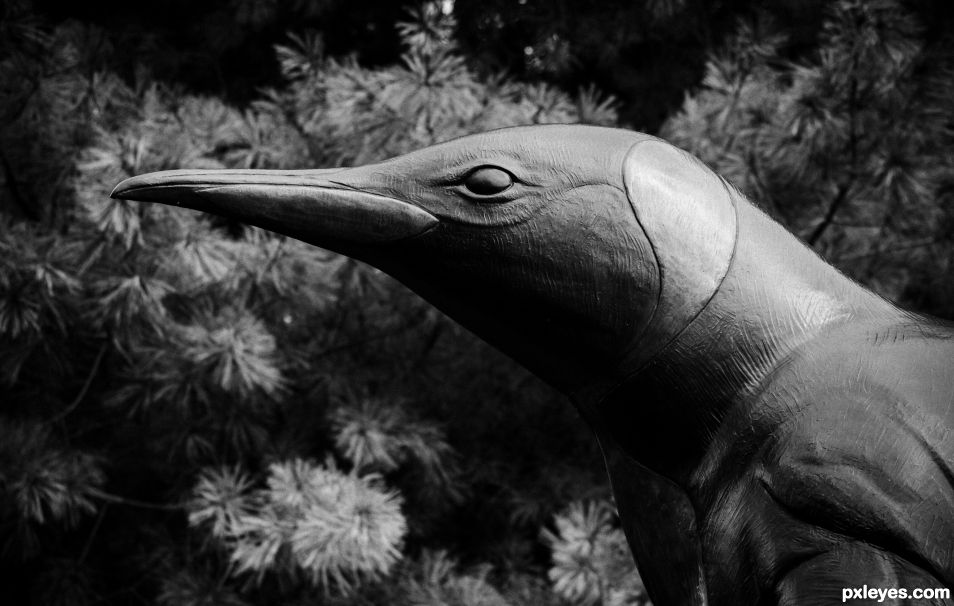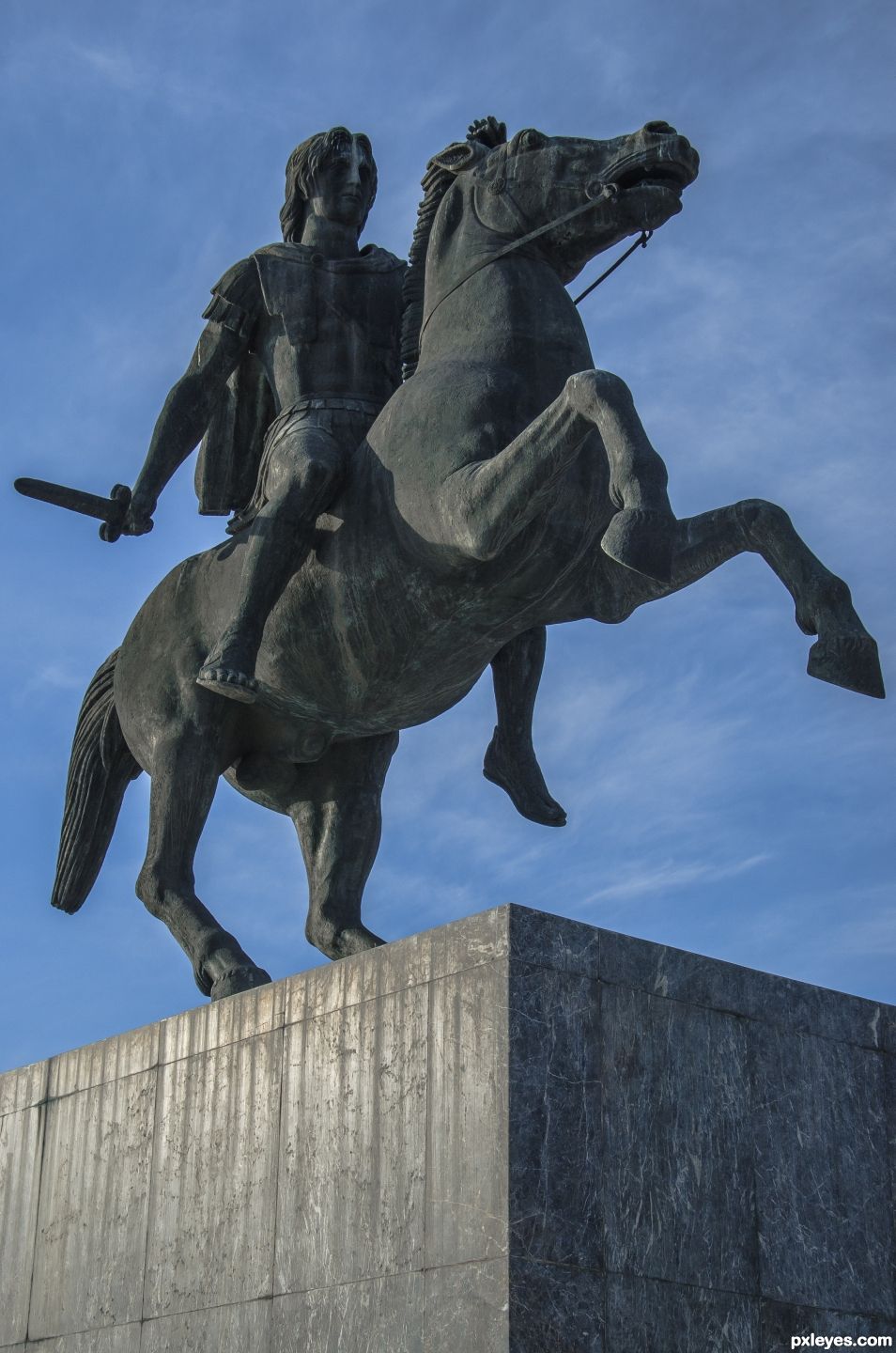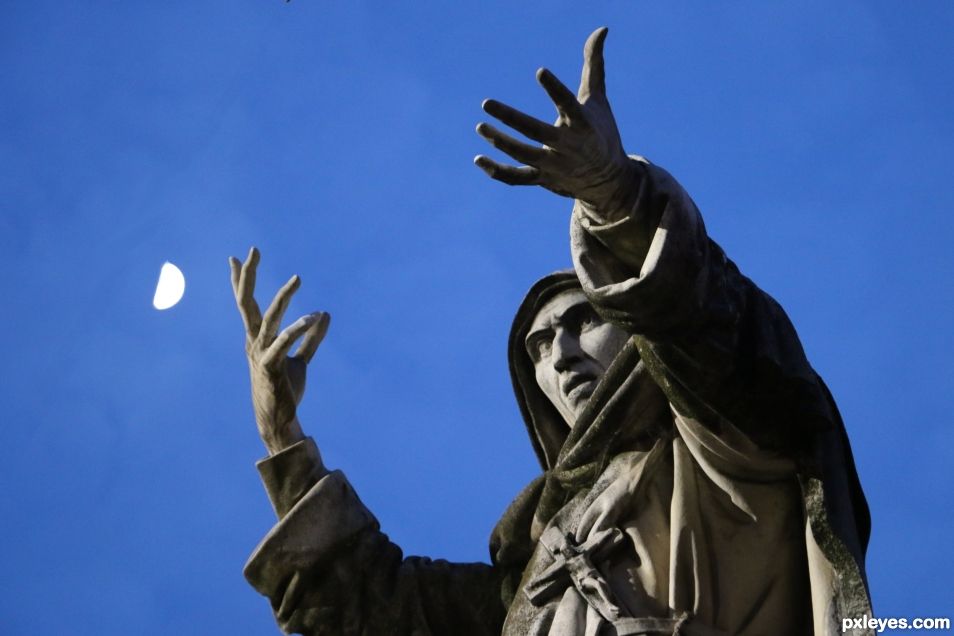
- Camera: Canon
- Camera model: Canon EOS 7D
- Exposure time: 1/125
- Aperture: f/5.6
- ISO: 100
(5 years and 1574 days ago)

Alexander III of Macedon (20/21 July 356 BC – 10/11 June 323 BC), commonly known as Alexander the Great (Greek: Ἀλέξανδρος ὁ Μέγας, Aléxandros ho Mégas [a.lék.san.dros ho mé.gas], from the Greek ἀλέξω (alexō) "defend" and ἀνδρ- (andr-), the stem of ἀνήρ (anēr) "man" and means "protector of men"iii[›]), was a King (Basileus) of the Ancient Greek kingdom of Macedon[1][2][3] and a member of the Argead dynasty, an ancient Greek royal house. Born in Pella in 356 BC, Alexander succeeded his father, Philip II, to the throne at the age of twenty. He spent most of his ruling years on an unprecedented military campaign through Asia and northeast Africa, and by the age of thirty he had created one of the largest empires of the ancient world, stretching from Greece to Egypt into northwest India and modern-day Pakistan.[4] He was undefeated in battle and is widely considered one of history's most successful military commanders.[5]
During his youth, Alexander was tutored by the philosopher Aristotle until the age of 16. After Philip's assassination in 336 BC, Alexander succeeded his father to the throne and inherited a strong kingdom and an experienced army. Alexander was awarded the generalship of Greece and used this authority to launch his father's Panhellenic project to lead the Greeks in the conquest of Persia.[6][7] In 334 BC, he invaded the Achaemenid Empire, ruled Asia Minor, and began a series of campaigns that lasted ten years. Alexander broke the power of Persia in a series of decisive battles, most notably the battles of Issus and Gaugamela. He subsequently overthrew the Persian King Darius III and conquered the Achaemenid Empire in its entirety.i[›] At that point, his empire stretched from the Adriatic Sea to the Indus River.
Seeking to reach the "ends of the world and the Great Outer Sea", he invaded India in 326 BC, but was eventually forced to turn back at the demand of his troops. Alexander died in Babylon in 323 BC, the city he planned to establish as his capital, without executing a series of planned campaigns that would have begun with an invasion of Arabia. In the years following his death, a series of civil wars tore his empire apart, resulting in several states ruled by the Diadochi, Alexander's surviving generals and heirs.
Alexander's legacy includes the cultural diffusion his conquests engendered, such as Greco-Buddhism. He founded some twenty cities that bore his name, most notably Alexandria in Egypt. Alexander's settlement of Greek colonists and the resulting spread of Greek culture in the east resulted in a new Hellenistic civilization, aspects of which were still evident in the traditions of the Byzantine Empire in the mid-15th century and the presence of Greek speakers in central and far eastern Anatolia until the 1920s. Alexander became legendary as a classical hero in the mold of Achilles, and he features prominently in the history and mythic traditions of both Greek and non-Greek cultures. He became the measure against which military leaders compared themselves, and military academies throughout the world still teach his tactics.[8]ii[›] He is often ranked among the most influential people in human history, along with his teacher Aristotle (5 years and 1580 days ago)

Girolamo Savonarola (Italian: [savonaˈrɔːla]; 21 September 1452 – 23 May 1498) was an Italian Dominican friar and preacher active in Renaissance Florence. He was known for his prophecies of civic glory, the destruction of secular art and culture, and his calls for Christian renewal. He denounced clerical corruption, despotic rule and the exploitation of the poor. He prophesied the coming of a biblical flood and a new Cyrus from the north who would reform the Church. In September 1494, when Charles VIII of France invaded Italy, and threatened Florence, such prophesies seemed on the verge of fulfilment. While Savonarola intervened with the French king, the Florentines expelled the ruling Medici and, at the friar's urging, established a "popular" republic. Declaring that Florence would be the New Jerusalem, the world center of Christianity and "richer, more powerful, more glorious than ever",[1] he instituted an extreme puritanical campaign, enlisting the active help of Florentine youth.
In 1495 when Florence refused to join Pope Alexander VI’s Holy League against the French, the Vatican summoned Savonarola to Rome. He disobeyed and further defied the pope by preaching under a ban, highlighting his campaign for reform with processions, bonfires of the vanities, and pious theatricals. In retaliation, the Pope excommunicated him in May 1497, and threatened to place Florence under an interdict. A trial by fire proposed by a rival Florentine preacher in April 1498 to test Savonarola's divine mandate turned into a fiasco, and popular opinion turned against him. Savonarola and two of his supporting friars were imprisoned. Under torture, Savonarola confessed that he had invented his visions and prophecies. On May 23, 1498, Church and civil authorities condemned, hanged, and burned the three friars in the main square of Florence.
Savonarola's devotees, the Piagnoni, kept his cause of republican freedom and religious reform alive well into the following century, although the Medici—restored to power in 1512 with the help of the papacy—eventually broke the movement. (5 years and 1582 days ago)
Howdie stranger!
If you want to rate this picture or participate in this contest, just:
LOGIN HERE or REGISTER FOR FREE